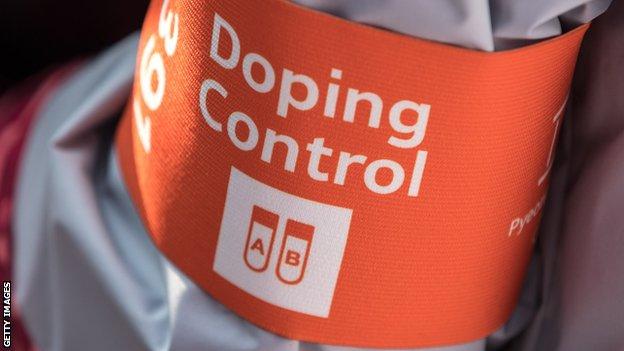Keeping Privacy for Athletes
Why random drug tests are an invasion of athletes privacy
In 2017, a campaign for drug testing in schools passed, in which Wilmington high schoolers would be screened for substance abuse signs and drug use, whether or not there is reason to believe the student is using or abusing substances. Policies like this are not uncommon in the US, and high schools reserve the right to drug test student athletes at random, whether they choose to do so or not. This right was upheld by the Supreme Court in the 1995 case of Acton v. Vernonia School District, despite being an invasion of student’s privacy.
In the Acton case, a boy who played on the Vernonia High School football team was subject to a random drug test. His mother felt it was an invasion of privacy because neither she nor the school had any reason to believe that her son was using drugs or alcohol. The family sued the school, and the Supreme Court ruled in favor of the school district, stating that students give their implied consent when they sign up for a sport through the school.
The issue with this is that most students don’t know that their implied consent is being given, and there is no need to test high school students at random. Drug testing is reasonable at the professional and Olympic levels, and could even be needed for college athletes, but it is not necessary for high school athletes. Drug testing in professional sports is used to prevent cheating, and help players who might be struggling with substance abuse. While PED use is fairly common in pro sports, it is extremely rare in high school athletes. In a study published by the American Journal of Lifestyle Medicine, 1%-12% of male high schoolers reported using anabolic steroids, and only 0.5%-3% of high school girls reported using PEDs. So if cheating is not a significant issue for high school sports, is there a need for random drug testing?
The only time a student needs to be tested for drugs or alcohol is if the school or their parent has a reason to believe that the student is using. These signs can come in many forms. If the child has a sudden change in behavior, gets caught stealing, or shows physical signs of drug use, then it is appropriate to move forward with a drug test, but until those signs are exhibited there is no need to drug test students at random.
Those in favor of drug testing student athletes might argue that it shouldn’t be a problem if the athletes have nothing to hide, but this is not the case because drug tests are not always effective, and athletes can fail drug tests without taking any illegal substance. The NCAA clearly states in their drug testing program that students have and will lose their eligibility because things like vitamins and dietary supplements can trigger a positive test. This is unfair for students, because they have to worry about being punished, even if they haven’t done anything wrong. Student athletes have enough to stress about without random drug tests looming over them.

My name is Dylan Merrill and I’m a senior at Triton High school !! Outside of school, I enjoy working with my dad, working out, making music, and supporting...








Clip God F • Oct 11, 2023 at 9:27 pm
Yep;)